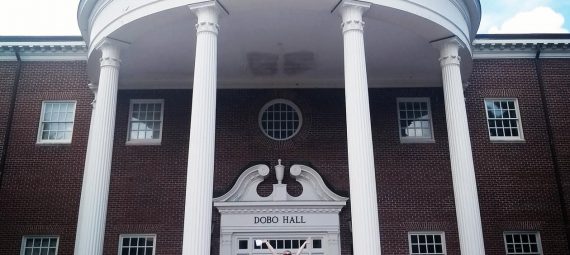I’ve spent the past year out in Wilmington, North Carolina studying Marine Biology at UNCW. It has honestly been one of the best years of my life. I’ve made some amazing lifelong friends and fallen in love with North Carolina. A Southampton student who was considering coming to study out here next year contacted me for some advice and after writing them a long reply I realised this would make a good blog post for future study abroad students. So, here’s some advice from me about studying abroad:
For accommodation, I decided to stay at Seahawk Landing, which I highly recommend for the students coming to Wilmington. Whilst it is the more expensive option, it’s worth the money as you have your own pool (I know right!) and you live on campus. In general, I would say if you are looking at going to a foreign university, check whether the accommodation you are considering is shared room only or not. If you’re fine with having a roommate then you’ll have no problems but if you need your own space like me, it is something to take into consideration as it is quite common among American universities. I would recommend staying on-campus as public transport wasn’t great in Wilmington, but this will vary from place to place. However, it might be difficult to find flatmates for off campus accommodation too unless you are going out with many study abroad students.
If you do decide to live off campus you may need to drive. Getting around out here in Wilmington can be difficult, I felt a little trapped on campus until we got bikes out here. Also, Uber and lift are good, and you can always club together with friends and share the cost. But try make some native friends with cars, a lot are happy to help take you the supermarket if they’re going or you pay fuel, and what’s better than a road trip with friends?!
When it comes to picking options, that really depends on what the university you are going to offers and what you are interested in. I am studying marine biology and I really enjoyed my graduate class on Antarctic Biology. I have also been helping out in Dr Kamel lab which focuses on molecular biology and it’s given me so much experience being in the lab and running PCRs and sequencing. My advice to everyone would be try get as many experiences at the university as you can, especially ones that may not be available to you at your home university. These not only look good on the CV but also may help you figure out what you like and what you don’t like.
Be prepared for the differences in education style. What I found is that with the American education system the workload is a lot more out here than at Southampton. Whilst the content may sometimes be easier, you juggle more subjects and it’s a lot more memorisation than discussing key concepts. So, it is a different style of learning, with less time for you to do your own wider reading and studying of the topic. It can take some time for new students to adjust to but it is manageable. Just work hard and play hard!
A few other tips:
Go to as many events the exchange university holds as it’s a really good way to meet people.
If you get the opportunity, sign up to get a host family. This is how I made a lot of international friends. It’s also a really nice way to have some nice experiences with some kind people. It’s not a big commitment, I meet with mine at least once a month and I’m sure I’ll stay in contact with them when I leave.
If you have any problems, contact the exchange university’s international office. At UNCW they couldn’t do enough to help us out, and it’s nice to feel like you have support in a new place.
Make friends with the people from your potential exchange university who are over in Southampton now! This is how I made a really good friend and I even stayed with her during a hurricane when the university evacuated. They also feel isolated sometimes so keep an eye out for them.

